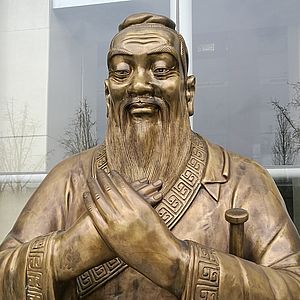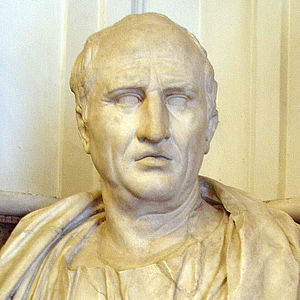Cultural and Political History of China and Europe
Content of the Lecture
Frank's university lecture "Cultural and Political History of China and Europe" provides a thorough study about differences, similarities, and encounters throughout the development of Chinese and European political and intellectual history. The course is divided into three alternating sections, always starting with China, continuing with Europe and closing with a comparison. The participant will herewith receive knowledge about origins and major lines of historical changes and philosophical thinking on issues of cultural, social, economic, and political ethics and developments in China and Europe.
The China Section
An introduction to the fundamentals of ethical thinking in ancient China is given at the beginning of the course, starting with a comparison of the main schools of the Hundred Schools of Thought period, among them especially Daoism, Confucianism, and Legalism. The class continues with a discussion about the main political and dynastic historical developments from ancient times throughout the middle ages to modern times. The history of continental China will be enriched by a history of the Silk Road on its land routes as well as on its maritime routes in the Southern and Western Oceans.
The Europe Section
Ancient Greek and Roman thought is generally considered to constitute the fundamental cultural heritage of the European civilization, however, additionally we have to start a bit earlier in the fertile crescent region of the Middle East and in nowadays Turkey in order to really understand Greek, Roman, and European history. From the early middle ages on to the present day, social and economic ethics in Europe are particularly influenced by the Christian faith. During this seminar, Christian social, economic, and political ethics and their impact on European cultures are therefore explained in depth. Above that, the history of European migration on the subcontinent itself and beyond will be covered during class.
The Comparative Section
The individual lectures usually conclude with discussions about cultural or historical differences and similarities or encounters of China and Europe. Above that, some topics, with regards to their contents, completely circle around encounters. Take alone for instance the history of merchants or priests like Marco Polo and Matteo Ricci, or the history of pirates like Zheng Yisao and Portuguese merchants at the shoreline of Guangdong province, or take the Opium War or the entire nineteenth century, all topics which will be covered in class during this term.
Aims, Scope, and Learning Outcomes
The student/participant receives a comparative cultural analysis about the history and philosophy on issues of cultural, social, economic, and political ethics in China and Europe. At the end of the course the student/participant will be able to judge and evaluate differences and similarities between Chinese and European ethical and historical developments.



